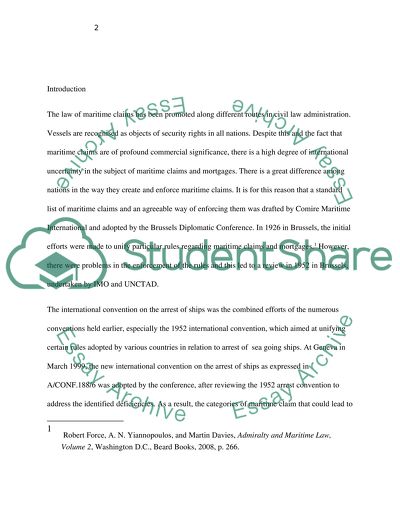Cite this document
(“Maritime law Essay Example | Topics and Well Written Essays - 1750 words”, n.d.)
Retrieved from https://studentshare.org/law/1468611-maritime-law
Retrieved from https://studentshare.org/law/1468611-maritime-law
(Maritime Law Essay Example | Topics and Well Written Essays - 1750 Words)
https://studentshare.org/law/1468611-maritime-law.
https://studentshare.org/law/1468611-maritime-law.
“Maritime Law Essay Example | Topics and Well Written Essays - 1750 Words”, n.d. https://studentshare.org/law/1468611-maritime-law.


